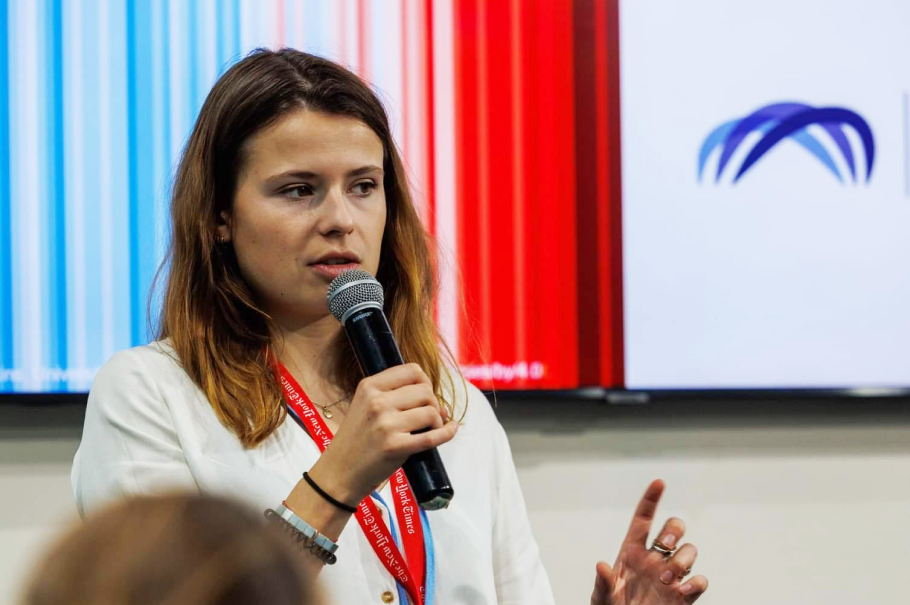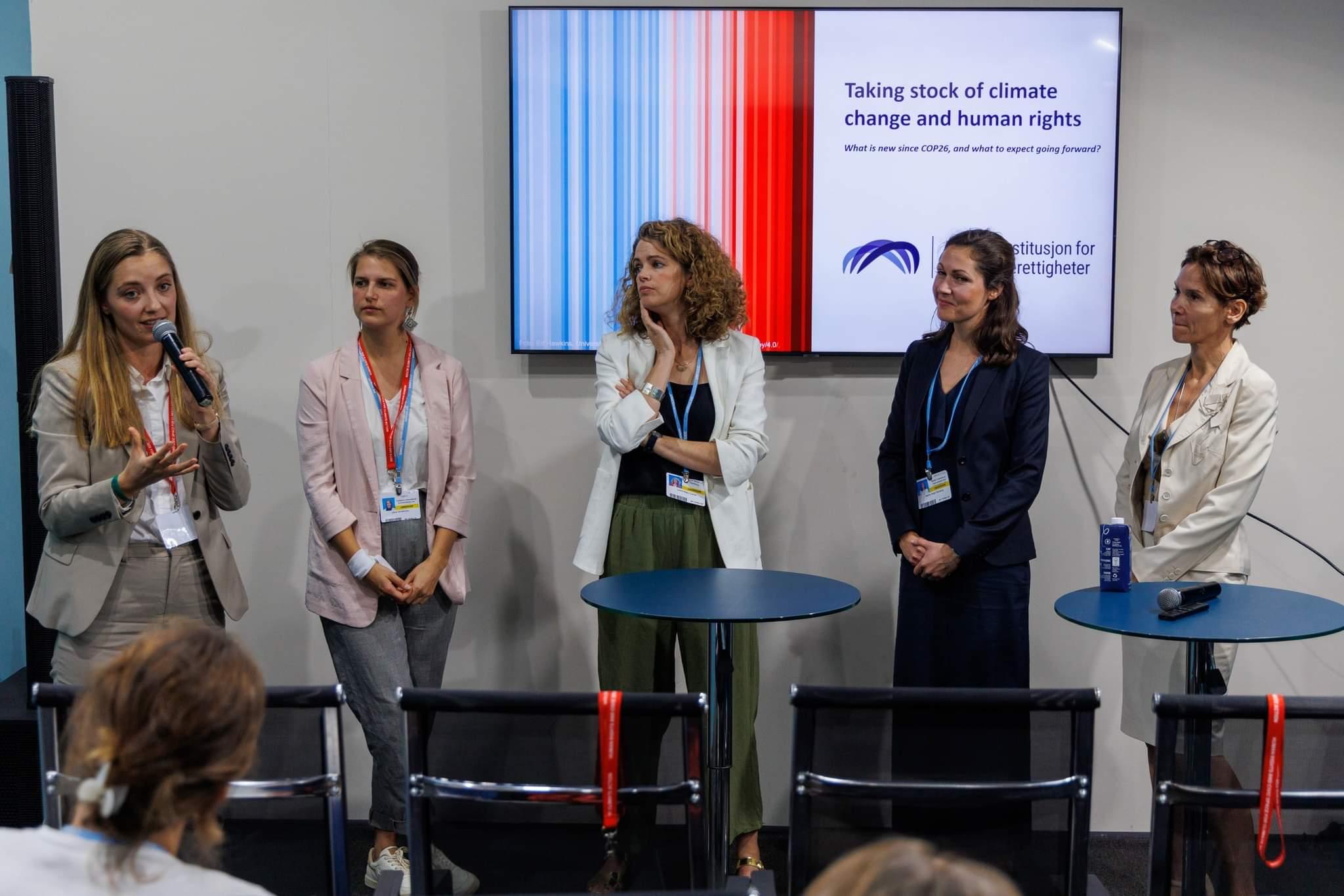In an in-depth conversation, hosted by the Norwegian National Human Rights Institution (NIM) at the climate meeting COP27 in Sharm El Sheik, Luisa Neubauer (Fridays for Future Germany), Laura Clarke (CEO ClientEarth), professor Christina Voigt (Paris Agreement’s Implementation and Compliance Committee), Lien Vandammer (Centre for International Environmental Law), and Jenny Sandvig (NIM) discussed the recent breakthroughs in human rights climate protection.

Luisa Neubauer, successful plaintiff in the pathbreaking German Federal Constitutional Court decision which bears her name, reflected on the deep paradox that youth must turn to courts to protect their basic rights against man-made climate impacts, and the political failure to rein in emissions.
You know, I do not see our win as a great victory, I see it as a failure of democracy that we had to sue our own government. It is sad that half a million youth striking in the streets for a year in Germany, getting the labor organizations, the church, and thousands of scientists to call for more climate action did not change the politics. That we had to go to court.
Following the win in the German Constitutional Court, which held the German climate law unconstitutional for failure to specify emission cuts after 2030 in order to protect the young plaintiffs against disproportionate risks of human rights infringements in the future due to insufficient emission cuts today, the German parliament strengthened the legally binding climate targets from 55 to 65 percent and brought forward the net zero goal from 2050 to 2045.
Despite these breakthroughs, Neubauer shrugs:
The court case was not perceived as such a big thing in the youth movement in Germany, because we all knew our government sucked on climate. It was like, sure, we won.
Yet, the political momentum created by the youth movement in Germany may have played a legal part. As Neubauer puts it:
Judges also have children. They get the questions at the dinner tables. Courts do not create norms; they respond to norms.
Laura Clarke, CEO of ClientEarth, an environmental legal charity, echoed Neubauer by noting that climate plaintiffs are not taking to court light-heartedly. She spoke of a recent case from the UN Human Rights Committee, which ClientEarth brought on behalf of several indigenous people from low-lying islands in the Torres Strait outside Australia, in which the Committee held that Australia violates their rights to home and indigenous cultural practices by failing to protect them in time from the rising seas.
It is a historic decision that empowers indigenous communities and those who are on the frontlines of climate change. It opens the door to holding government to account for failing to protect their own citizens against climate change, and to hold them to account for the emissions under their effective control.
Clarke also told of how one of the plaintiffs in the Torres Strait Islanders case, in a deeply moving intervention at the climate summit on Wednesday 9th November, explained how the rising waters wash away the holy burial grounds of their ancestors, leaving him and his young son to pick up the bones of their great-grandparents from the beach.
No parent should have to witness that, he said then.
Christina Voigt, co-chair of the Paris Agreement’s Implementation and Compliance Committee, spoke to the recent developments on human rights in the climate regime of the UN Framework Convention on Climate Change She explained that the preamble of the Paris Agreement references the respective human rights obligations of contracting states, which may develop and evolve independent of the UN Climate Framework.
This is aligned with the design of the Paris Agreement, which embodies a bottom-up approach to ratcheting up climate action nationally, for instance through courts.
Lien Vandammer from CIEL gave fresh insights from the ongoing negotiations at COP27 in Sharm El Sheik and referenced the work done by civil society to ensure a human rights approach to loss and damage, a major issue in this year climate conference.
I need not explain the human consequences of climate change. The floods in Pakistan, for instance, affected millions of people.
Extreme rainfalls and the melting glaciers in the Himalaya caused ravaging floods in Pakistan earlier this year, affecting 33 million people and flooding a third of the country, including essential agricultural areas which millions depend on for nourishment.
To Jenny Sandvig, Chief Policy Director of the Norwegian National Human Rights Institution, the devastating impacts that climate change is already having on human lives and well-being evidence how basic human rights are endangered by climate change.
I believe human rights law will only be more important in climate action going forward. Yes, rights are often individualistic, competitive, and conflictual, but at its core, the legacy of human rights passed on to us in the aftermath of the world wars, was to preserve human civilizations for the benefit of future generations. At heart, these rights pursue a collective and unifying long-term goal, which in this moment in time is yet another justification for rapid climate action.
The event was moderated by Hannah Cecilie Brænden, advisor at the Norwegian National Human Rights Institution.
Thursday November 10th, 2022
Sharm El Sheik, Egypt
COP27, Blue Zone
Bellona Pavillion
